If your family has just increased by a kitten or two you may have noticed how energetic they are.
These adorable, butter wouldn’t melt balls of fluff do their best to explore every inch of their new home – sprinting, climbing, play fighting and pouncing as they go.
You may be wondering if your new kitten is okay or if they have some kind of hyperactivity disorder such as Hyperactive Kitten Syndrome.
But fear not, Hyperactive Kitten Syndrome is not an issue and kittens are naturally energetic and hyper (just like children!).
Contents
What Does Hyperactivity In Cats Look Like?
Kittens are full of energy, they are curious, mischievous and when they are not sleeping they tend to be very active.
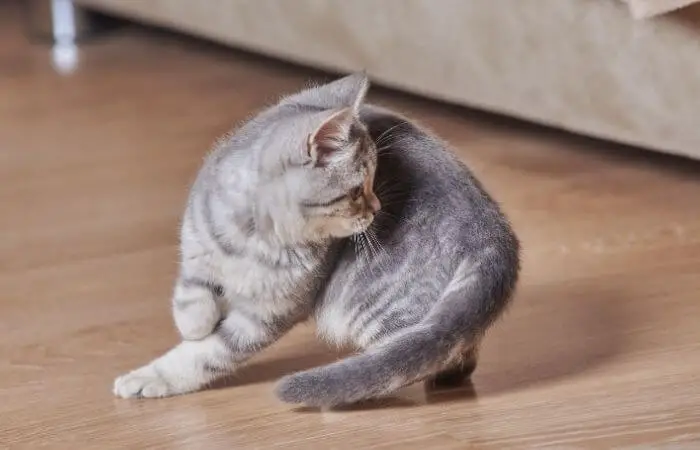
If you have a kitten at home, the chances are you will recognise a few of the hyperactive behaviours listed below.
Common hyperactive behaviours include:
- Sprinting around the house
- Chasing others (people and other pets)
- Jumping across and over furniture
- Compulsive licking
- Being vocal and wanting attention
A burst of hyperactivity can come as a way to release energy and alleviate boredom and could be a response to being alone in the house for a long time or to sleeping for a long time.
Is Cat Zoomies The Same As Hyperactivity?
Almost every cat experiences cat zoomies on a regular basis. This is when a cat suddenly goes crazy running around and jumping.
Normally, the cat stands in an attack stance, their hair stands up on their back and then they run around for a few minutes.
After a bit of running around the cat will calm down and will probably find a comfortable space to rest.
For many, cat zoomies is a near daily occurrence. It is nothing to worry about and is not the same as hyperactivity.
How To Calm An Energetic Kitten:
Below are some of the best ways you can calm an energetic kitten.
They need to use their energy somewhere so this guide is about helping them direct it in a way that is healthy, safe and appropriate.
These tips will not only help your kitten chill out but will also help you build a stronger bond.
1. Play With Them
You can encourage play by replicating natural and instinctive behaviours such as the hunting cycle of “chase, catch, kill”.
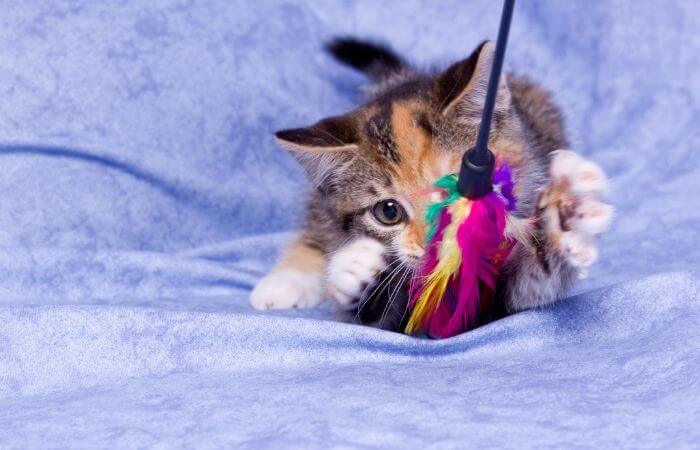
You can do this by encouraging your cat to stalk and chase their toy – they won’t be able to resist pouncing on it and joining in the games.
Kittens tend to love toys such as wands with feather and stuffed mice that inspire predatory skills.
A few play sessions a day will help use up some of that intense kitten energy in a safe and healthy way.
When you are playing, make sure you don’t encourage your cat to use you as a toy.
This can lead to them swiping and nibbling hands etc. which can become problematic as the cat gets older. If your kitten is biting you or your clothes, make a short, sharp noise and stop playing.
2. Wind Down & Offer Food
When you have had enough of playtime, rather than stopping the play immediately try to slow things down.
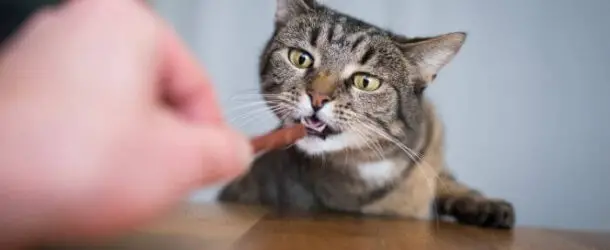
Use slower movements and make it clear the game is coming to an end.
This gives your kitten a chance to see that things are winding down and it will help them begin to relax too.
You can offer them some cat food (if this fits with their food routine) and then they will likely settle down and rest.
3. Provide Access To Scratching Posts, Cat Trees & A Window Perch
Playtime with humans is fantastic but your kitten will also be spending some time alone.
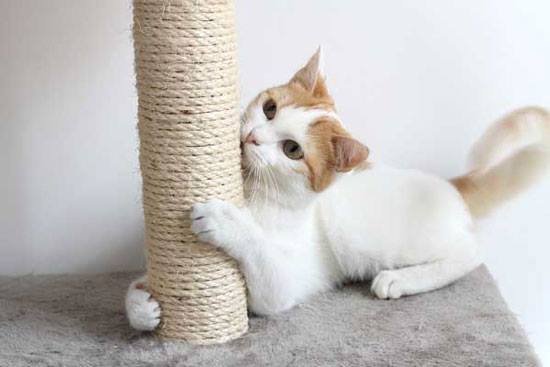
To help increase their experiences and encourage them to direct their energy to the right places consider providing the following around the house:
- Scratching posts – these are great for your cat’s claws (and for your furniture!).
- Cat tree – cats love to be up high so a cat tree is perfect. A tall, stable cat tree will help your cat watch over the house and will give them places that can be claimed as their own.
- Window perch – providing your kitten with somewhere they can sit and look out of the window is great enrichment, particularly if you put a bird feeder on the other side on the window. Cats can spend hours watching birds come and go.
4. Give Calming Valerian Root
Valerian root is known for helping cats relax. It is often given during fireworks displays or during stressful changes in routine.
Valerian root is a natural strong-smelling herb which attracts cats.
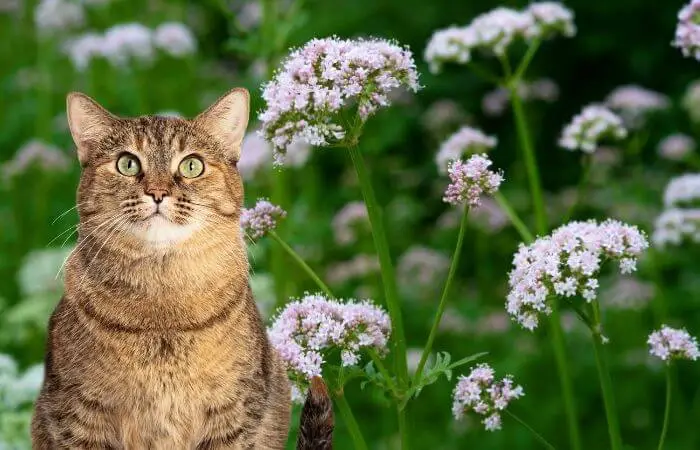
Your cat may experience a burst of energy after smelling valerian or chewing a toy with valerian in.
Then, they will quickly settle down and chill out. This is a great way of encouraging your kitten to rest and relax.
5. Put On Soft Music
Soothing music can help mellow out your cat.
There are often lots of new experiences happening each day in their new home so giving your kitten a safe place to be away from all of the new people, furniture, experiences etc. with some soft music (on a low volume) might help calm them down.
6. Give Lots Of Attention
Make sure you give your kitten lots of attention.
They will need snuggle time as well as playtime.
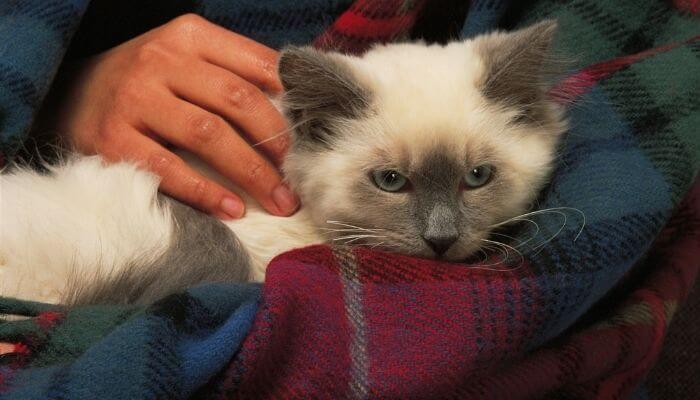
Give them cuddles and let them sit with you when they want attention.
This will help keep feelings of boredom and loneliness at bay.
7. Give Them A Food Puzzle
Another way to keep your kitten busy, particularly when you are busy, is to give them a food puzzle.
This can be a handful of kibble or cat treats inside a treat ball or hidden in a toy.
A food puzzle promotes healthy exercise and will help your kitten burn off some energy.
It will also stimulate their minds.
8. Consider Introducing Another Kitten To The Home
While this may not be a suitable option for everyone, some homes may benefit from introducing another kitten of (more or less) the same age.
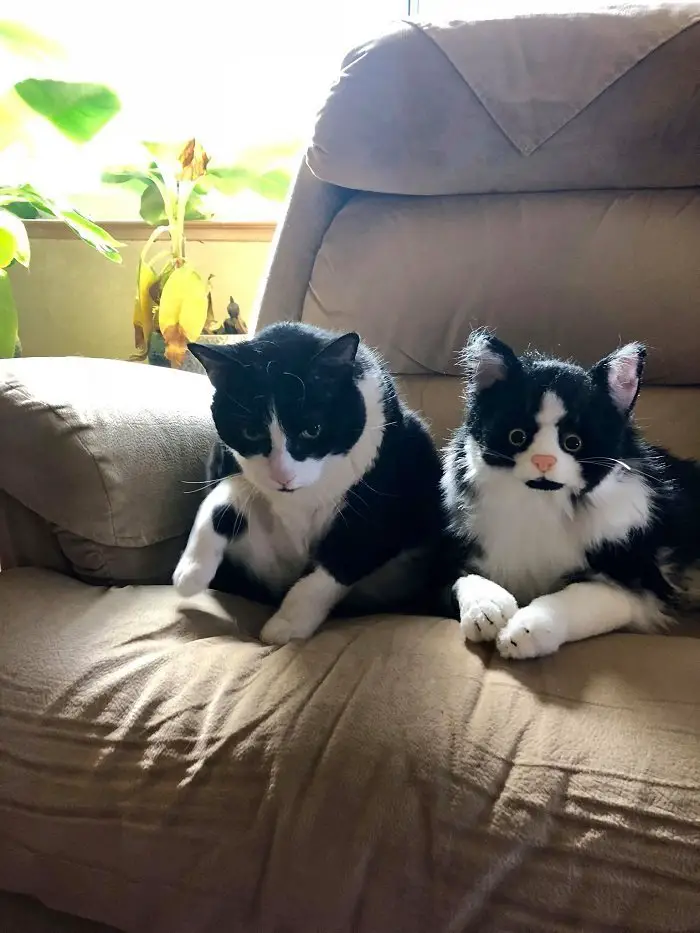
The kittens will then have each other for company and will learn from each other how to behave appropriately.
This should reduce the strain on you.
When Do Kittens Calm Down?
Remember that a lot of the energy you are seeing is because your cat is still young.
When they have reached around 8-12 months old (approximately the equivalent of 16 in human years) they will begin to calm down and you will see less and less of this hyperactive behaviour.
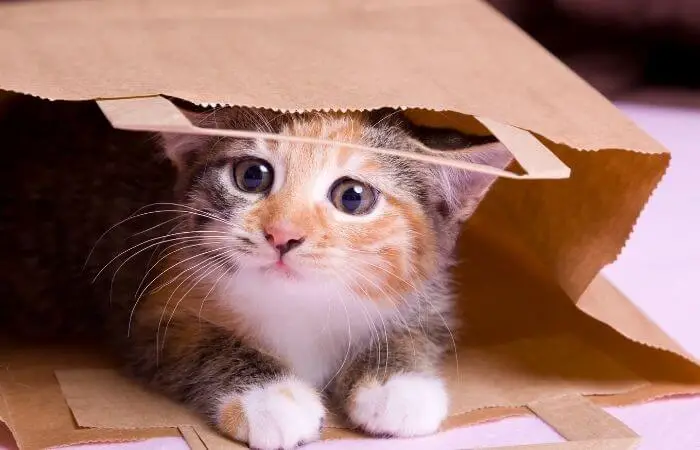
They tend to start getting very active at around 10 weeks old so if you want to skip the hyperactive phase, look at adopting an older cat or one that is just over a year old.
The most hyperactive phase for a kitten tends to start at around 3 months old.
From here until they mature they will be eating lots of food, running around a lot and may destroy some furniture and tissue paper rolls in the process.
Each cat is different so while some will grow out of this, others may remain highly energetic in adulthood too.
Is Hyperactivity Something To Be Concerned About?
An energetic kitten is nothing to be worried about. Cat’s are naturally quite hyperactive.
However, if you are seeing behaviours that are making you concerned then it is important to take your cat to the vet for a check-up.
If you see sudden behavioural changes and other symptoms it may be a sign there is something else going on.
If you have taken your cat to the vet and there aren’t any health issues then lots of playtime and attention should help your kitten burn some of their energy.
As an Amazon Associate I may earn a small fee from qualifying purchases at no extra cost to you. This helps us run the site, so thanks for your support!

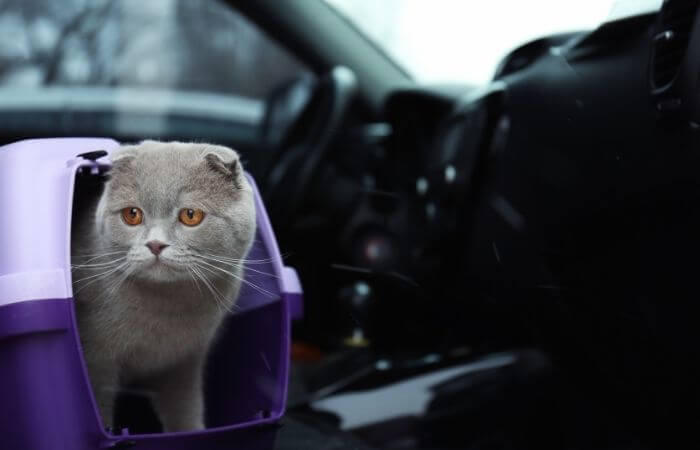
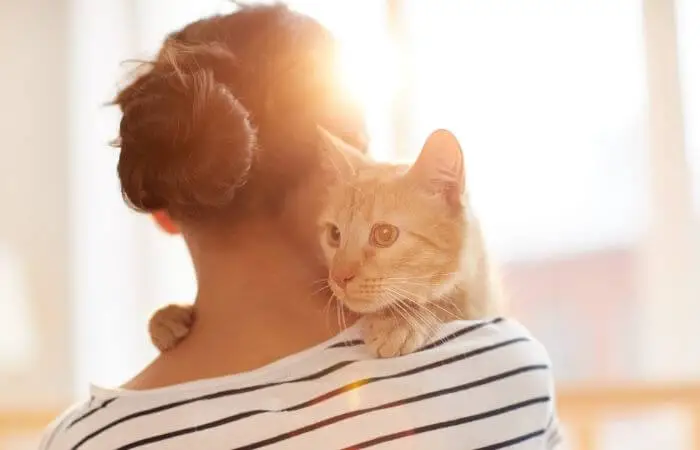
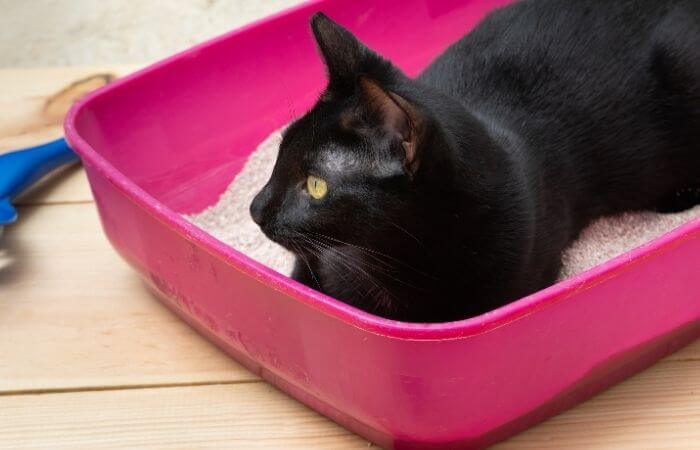
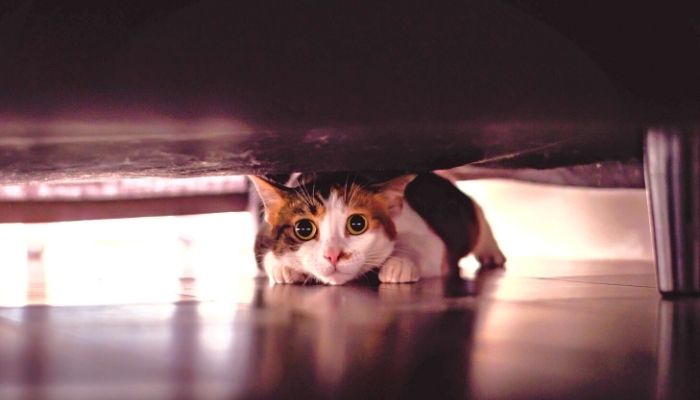


Leave a Comment